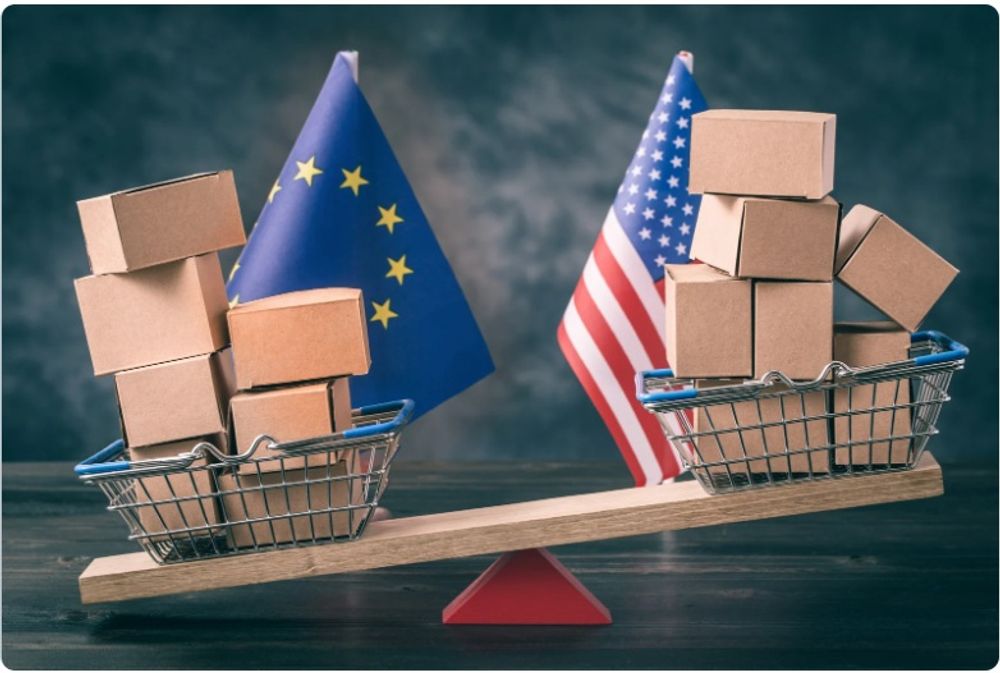How EU Tariffs on U.S. Goods Could Affect Your Business Taxes in 2025

What’s Happening?
The European Union (EU) just made a big announcement. They are adding new tariffs (extra taxes) on some goods made in the United States. This means that if your business makes or sells certain products, it may now cost more to sell them in Europe.
The EU is doing this because the U.S. put tariffs on some European goods earlier. So now, the EU is responding with its own plan. They’re starting with a few products, but more could be added later. Some items on the list include metal goods, orange juice, and motorcycles.
But what does this mean for you as a business owner? And how could this affect your taxes? Let’s break it down in simple terms.
What Are Tariffs?
A tariff is like a tax, but it’s only charged on goods that are brought into a country from another country. For example, if a U.S. company sells motorcycles to a buyer in Europe, the buyer may now have to pay more because of the EU tariff.
These added costs can make U.S. goods more expensive in Europe. That might mean fewer sales for U.S. companies or smaller profits.
How This Affects Your Business
If your business sells products that are now on the EU’s tariff list, it’s time to pay attention. Here’s how it might impact you:
1. Higher Costs for Buyers
European customers may have to pay more to buy your product. That could make your product less competitive.
2. Lower Demand
If buyers don’t want to pay extra, they might stop buying. That can mean fewer sales and lower profits for your business.
3. Changing Supply Chains
You might need to look for new places to sell your products or even change where you make them.
Will This Affect Your Taxes?
Yes, it can. Here are a few ways that tariffs might affect your business taxes:
1. Lower Income = Lower Taxes
If your business makes less money because of lower sales, you may owe less in taxes. That might sound like a good thing, but it's not great in the long run. Lower income can hurt your ability to grow and invest.
2. Changes to Deductions
If your shipping or manufacturing costs go up, you may be able to deduct more on your taxes. That could help reduce what you owe.
3. Increased Planning
You may need help from a tax professional to make a new plan. For example, you might want to shift where your products are made to avoid tariffs.
What Should You Do Now?
Don’t wait to see what happens. If your business is involved in international trade—or even if it might be—start planning now. Here’s how:
✅ 1. Talk to a Tax Pro
An accountant or tax planner can help you understand how tariffs affect your business taxes and what steps to take.
✅ 2. Watch Your Numbers
Keep track of sales, costs, and profits. That way, you’ll notice if tariffs are making a big impact.
✅ 3. Explore Other Markets
If Europe becomes too expensive to sell to, you might find new buyers in Asia, South America, or even at home in the U.S.
✅ 4. Look Into Tax Credits
Sometimes the government offers tax credits to help businesses deal with trade problems. A tax expert can help you find out what’s available.
What If You Don’t Sell to Europe?
Even if you don’t sell anything to the EU, tariffs can still affect your business. Here's how:
- You might buy parts or products from companies that do sell to Europe. If their costs go up, your costs could go up too.
- U.S. companies may have more unsold goods because of lower international sales, which can cause price drops or market slowdowns.
- The trade fight could grow, and more industries could get hit later.
So even if you think you’re safe, it’s smart to stay informed and ready to make changes.
Big Picture: Why This Matters
Trade between countries is a big deal for the world economy. When one country adds tariffs, the other usually does the same. This is called a trade war. Trade wars can cause uncertainty and lead to higher prices, fewer jobs, and less business growth.
For small and medium businesses, these changes can be hard to manage. But with the right help and some smart planning, you can reduce the impact on your business—and even find new ways to grow.
Final Thoughts
The EU’s new tariffs are more than just international news—they could change how your business runs and what you pay in taxes. It’s a good time to review your finances, update your tax strategy, and look for new opportunities.
If you’re unsure where to start, a trusted tax advisor can guide you. They’ll help you plan, save, and protect your business through changing times.
Take Action
- Talk to a tax professional today
- Review your business’s exposure to EU markets
- Explore ways to adjust your tax strategy
With the right plan, your business can weather the storm—and come out stronger.